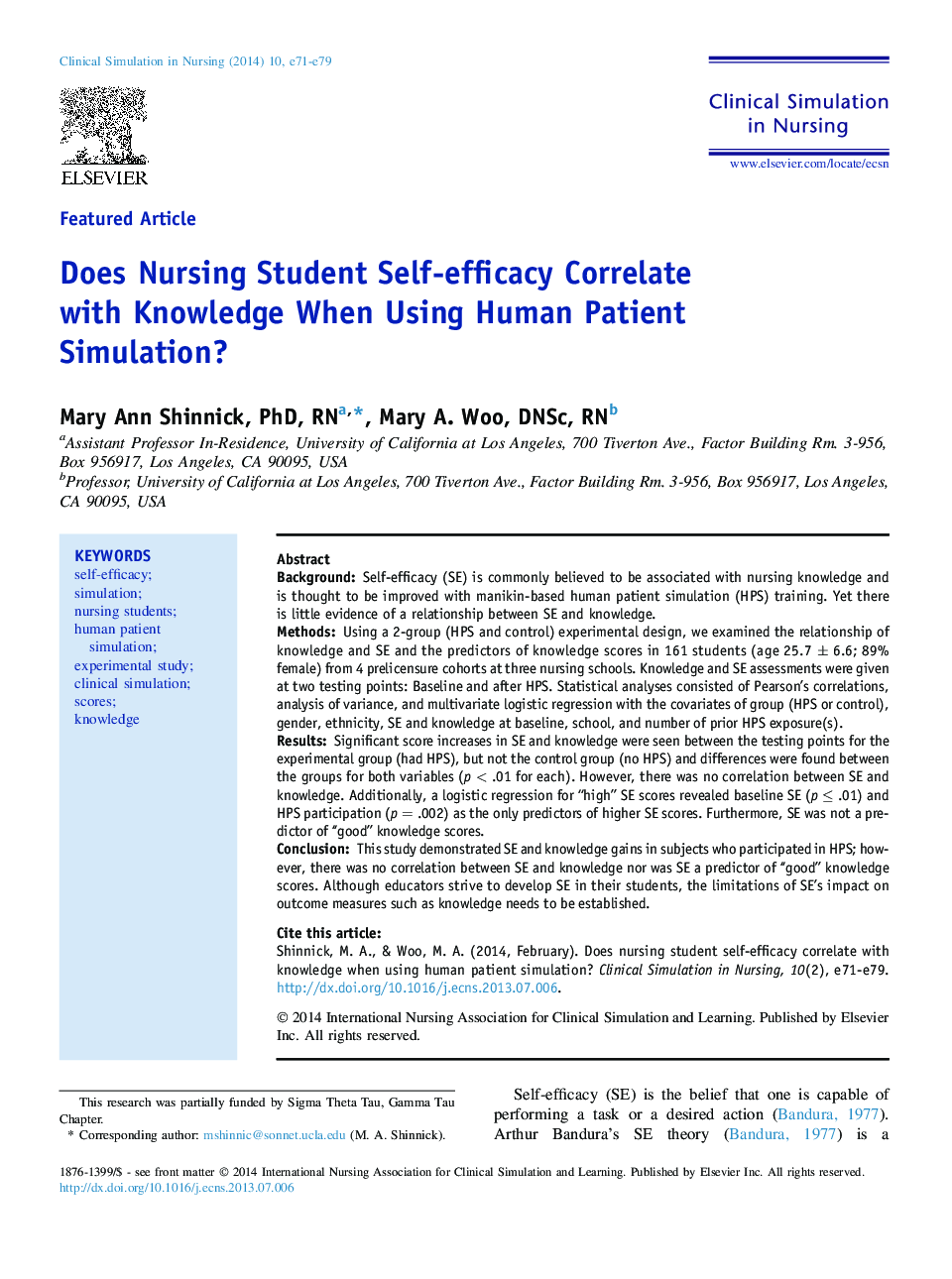| Article ID | Journal | Published Year | Pages | File Type |
|---|---|---|---|---|
| 5868325 | Clinical Simulation in Nursing | 2014 | 9 Pages |
BackgroundSelf-efficacy (SE) is commonly believed to be associated with nursing knowledge and is thought to be improved with manikin-based human patient simulation (HPS) training. Yet there is little evidence of a relationship between SE and knowledge.MethodsUsing a 2-group (HPS and control) experimental design, we examined the relationship of knowledge and SE and the predictors of knowledge scores in 161 students (age 25.7 ± 6.6; 89% female) from 4 prelicensure cohorts at three nursing schools. Knowledge and SE assessments were given at two testing points: Baseline and after HPS. Statistical analyses consisted of Pearson's correlations, analysis of variance, and multivariate logistic regression with the covariates of group (HPS or control), gender, ethnicity, SE and knowledge at baseline, school, and number of prior HPS exposure(s).ResultsSignificant score increases in SE and knowledge were seen between the testing points for the experimental group (had HPS), but not the control group (no HPS) and differences were found between the groups for both variables (p < .01 for each). However, there was no correlation between SE and knowledge. Additionally, a logistic regression for “high” SE scores revealed baseline SE (p ⤠.01) and HPS participation (p = .002) as the only predictors of higher SE scores. Furthermore, SE was not a predictor of “good” knowledge scores.ConclusionThis study demonstrated SE and knowledge gains in subjects who participated in HPS; however, there was no correlation between SE and knowledge nor was SE a predictor of “good” knowledge scores. Although educators strive to develop SE in their students, the limitations of SE's impact on outcome measures such as knowledge needs to be established.
